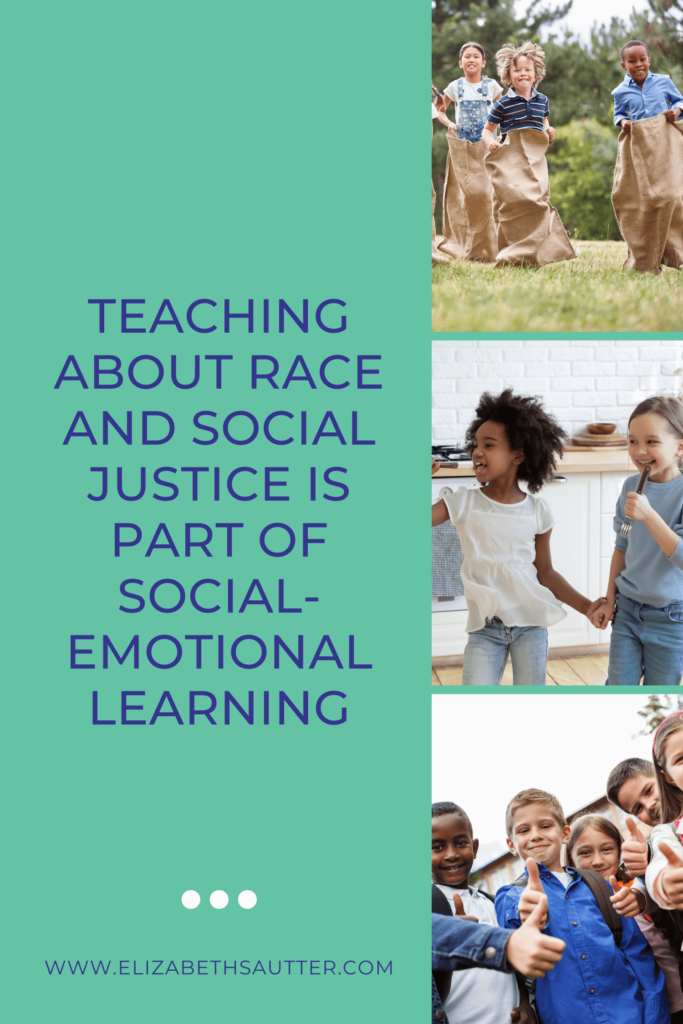Communication.
Social Justice.
Kindness.
Perspective-taking.
Conflict resolution.
These skills are fundamental to social-emotional learning and are critical as we face painful realities about race and social justice in America.
As parents, therapists, educators, it is important for us to have conversations with all the children we support and care for. Whether or not kids are bringing up issues about racism, they’re taking in information and are likely to have questions, concerns, and opinions.
We can break these words down for our children who might not understand what they mean. They are abstract and our kiddos might need specific examples for how it looks and feels.
This article on implicit bias includes a test we can use to measure our own unconscious or automatic bias. According to the authors, studies show that even people who are consciously committed to egalitarianism and strive to act without prejudice can still hold hidden negative prejudices or stereotypes.
In addition to examining our own attitudes and biases, we can encourage children to be curious rather than judgmental about other people. We can urge them to start from a place of kindness. This is perspective taking and a huge part of what relationships are all about.
We can also discuss what it means to care for our own emotions and for the people around us and stand up when we see others being treated unfairly. We can talk about what it means to be a bystander who watches without taking action versus an upstander who finds an appropriate response in the moment or after an incident occurs. As we discuss these important issues, we’re also teaching social-emotional skills that children can use in that moment and throughout their lives.
And by having these dialogues and embracing these teachable moments, we can create a ripple effect of change…one child, one person at a time.
The other big piece of this is for your children to see you as a model. How do you treat others and how do you speak about others when they are not around? Take note of your own behavior, and be aware that your kids will too. Notice the books you are reading to your children and the messages those books send. Notice the T.V. and movies you are watching together. Increasing your awareness and becoming intentional is part of being a conscious parent and also part of how we can make changes in the world.
It is our responsibility to foster inclusion and anti-racism practices in our children. There are many resources out there so we wanted to start by sharing a list of books that focus directly on racism and books that feature non-White main characters.
Below you will find reading materials for all ages that support conversations on race:
As always, we love learning together and welcome thoughtful dialogue and sharing of steps that your family is taking to create a better and more inclusive world, together. Social-emotional learning and teaching tolerance, perspective-taking, and empathy starts with us.
Speaking of “us”, I want to disclose that I am a white woman, mother, wife, therapist/coach and learning everyday how to address and acknowledge this important aspect of humanity. I encourage others to do the same.
Thank you Monica Hudnall, who is a Black female clinician, scholar, and researcher for your help in writing this blog and being an advocate and leader within our SLP community about race and equity.

